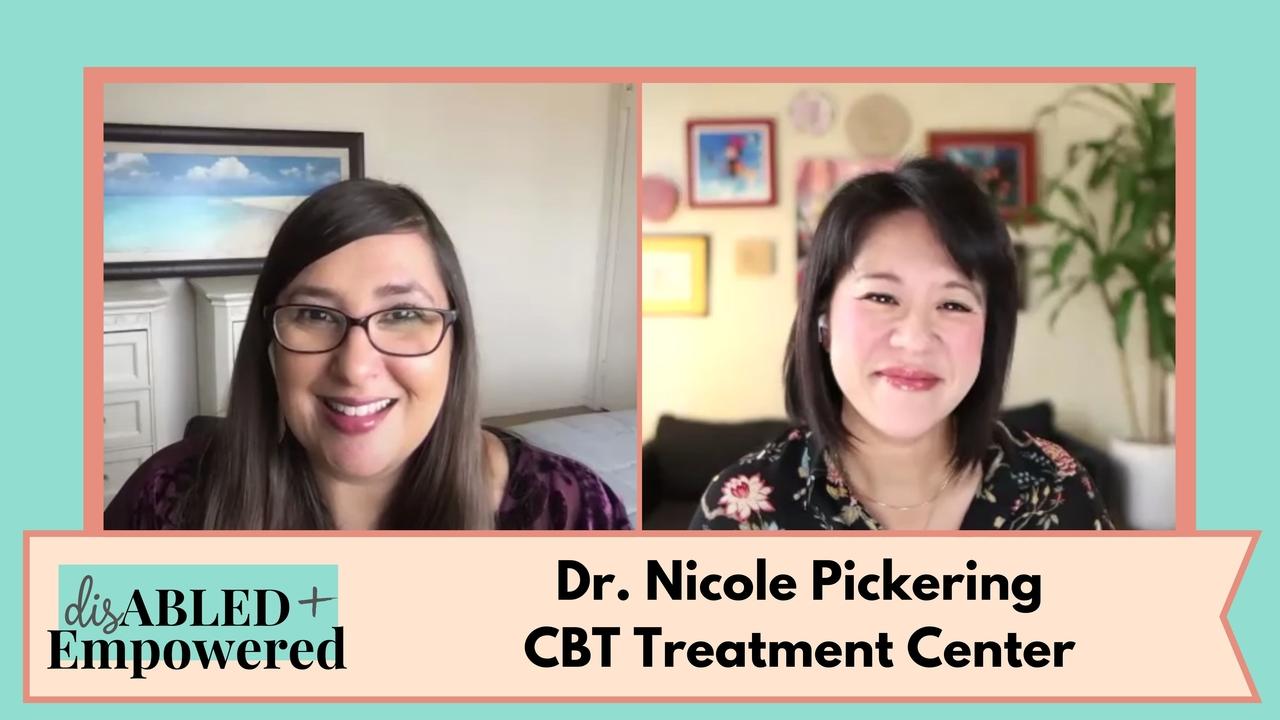What is CBT and is it Effective for Individuals with Neurodiversities? An Interview with Dr. Nicole Pickering

Hello, Dr. Nicole Pickering
It's wonderful to be surrounded by wonderful colleagues who like to geek out with me. I've known Dr. Nicole Pickering, Director of the CBT Treatment Center, in the Los Angeles area for many years and she's always generous with her time and talent. I've been hearing lots of chatter in my sphere about whether Cognitive Behavioral Therapy (CBT) is an effective treatment modality for individuals with neurodiversities, so I asked Nicole if she'd come on my YouTube channel to chat about it. Lucky me. She did.
The nuts and bolts
Let's start with what CBT is. CBT is an evidence-based approach that has been scientifically proven to relieve anxiety-based (and other) disorders. Anxiety-based disorders include Generalized Anxiety Disorder (GAD), Obsessive-Compulsive Disorder (OCD), Panic Disorder, Post-Traumatic Stress Disorder (PTSD), phobias, tic disorder, and body-focused repetitive disorders (Trichotillomania, skin picking).
CBT focuses on the trifecta of thoughts, feelings, and actions, and aims to change the relationship between the three. Changing the relationship of any part of this trio helps individuals interact with the world around them with more ease, calm, and peace.
CBT is short-term, solution-focused, and goals-based. It's a no-nonsense approach that ruthlessly attacks the monster that anxiety can be.
When it's good and when it isn't
When CBT works, it works. Nicole can attest to this. So, why is there the opinion that CBT isn't a power tool when used with a neurodiverse population? Why is it getting a bad rap?
Very simply, one size doesn't fit all, and in the treatment of neurodivergent individuals, this is especially true. Anyone providing intervention with this diverse population needs to understand each individual's profile (cognitive, sensory, processing), strengths, weaknesses, and interests. We need to deeply understand before we treat.
While CBT can align nicely with individuals who like formulas, strategies, and learning concrete skills, it's not a good fit for individuals who have a hard time reflecting on themselves (poor self-awareness) and being an observer of their own thoughts. So much of CBT relies on the awareness of our own thoughts and feelings, that without this, CBT is hard to do in it's purest form.
Tweaking (um, the good kind)
The good news? Nicole has gotten creative to make CBT more accessible to the neurodiverse community by meeting her clients where they are. She uses visuals to educate her clients and to represent concepts, analogies that tap into the interests of her clients, and plays with different platforms of communication. Knowing how powerful CBT can be, Nicole always gives CBT a good 'ol college try before removing this modality as an option for her clients to find relief.
Triage and go
Nicole is a pro at figuring out what intervention technique she uses with her clients. There's a problem with thinking? She works with challenging thoughts and shifting attention. Feeling physiologically distressed or don't know how to calm? Nicole teaches physiologically-based techniques. Avoiding certain behaviors or situations? She fights avoidance head-on in easily digestible bite-sized chunks. Having problems with thoughts, feelings, and behaviors? No worries, Nicole's got it covered. When Nicole broke it down like this, I experienced Marie Kondo-level joy (so happy).
Paving new paths
Nicole is like a really great headlamp for camping...like a bright and focused beam helping us find new paths to see the stars better. There's nothing like finding relief with skills we've practiced and know how to use. Now that's empowerment.
If you want to hear my interview with Nicole, check it below 👇🏼🤩.
Want to find out more about Nicole? Click here.
